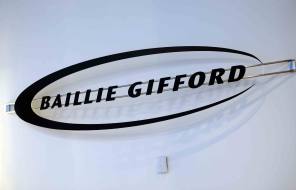

The managers of Baillie Gifford’s High Yield Bond fund have been adding to a holding in embattled home improvement retailer Travis Perkins, claiming it typifies the kind of “resilient” business sought for the portfolio.
The company, which also deals in trade supplies, used its third quarter trading update to issue a profit warning, dampening earnings forecasts and announcing plans for a series of efficiency programmes and branch closures that will affect around 600 employees.
However Donald Phillips, who runs the £565m global fund with co-manager Robert Baltzer, said that despite this bad news, the company’s track record of flexibility had persuaded the team to top up exposure.
“It had a good crisis in 2008. The company has a good grasp on how to manage the business when excess capacity comes in,” he explained.
“The profit warning and sell off and [poor performance from] its plumbing and heating operation is a negative. But it has flexibility in its business model.
“We think it’s in good shape to survive another cycle, come what may. This is a business that’s resilient and has proved itself over decades, so we have added to it.”
While the fund’s managers focus on the high yield market, their approach revolves partly around finding companies that can weather “economic fluctuations”.
This has seen them buy short-dated debt from Thomas Cook, which issued its own profit warning earlier this year as terrorism on the continent and political upheaval in Turkey troubled the broader industry – in addition to concerns about the UK’s vote to leave the EU.
“We bought that very recently,” Mr Baltzer noted. “It’s a pretty tough environment for travel companies. But this is a business that has reduced debt in recent years. That strategy makes it a better business.
“It also has a good business selling to tourists on the continent. It has a hedge if UK consumers find it more expensive [to travel].”
In a similar move, the managers briefly held Glencore, stating there were “counter-cyclical cashflow elements to the business that make it extremely resilient”.
“In the past 12 or 18 months, we have seen [a lot of] fallen angels like Anglo American. We did look at Anglo American but thought Glencore was more interesting.”
The fund holds between 50 and 90 companies, across the yield spectrum, with some holdings yielding more than 8 per cent and others between 0 and 2 per cent – averaging out at about 4 per cent.
Some weightings – such as their 11.7 per cent in financial services at the end of September – could belie more granular allocations, the managers said.
“From a sector point of view, on financials we are pretty close to neutral but that masks a big underweight on banks and a large overweight on insurance,” Mr Phillips said.
At the end of September, financials holdings included Lloyds Banking Group, Phoenix Life and Old Mutual.
According to FE Analytics the fund has returned 12.8 per cent over three years, compared with 9.8 per cent from its IA Sterling High Yield peer group.



